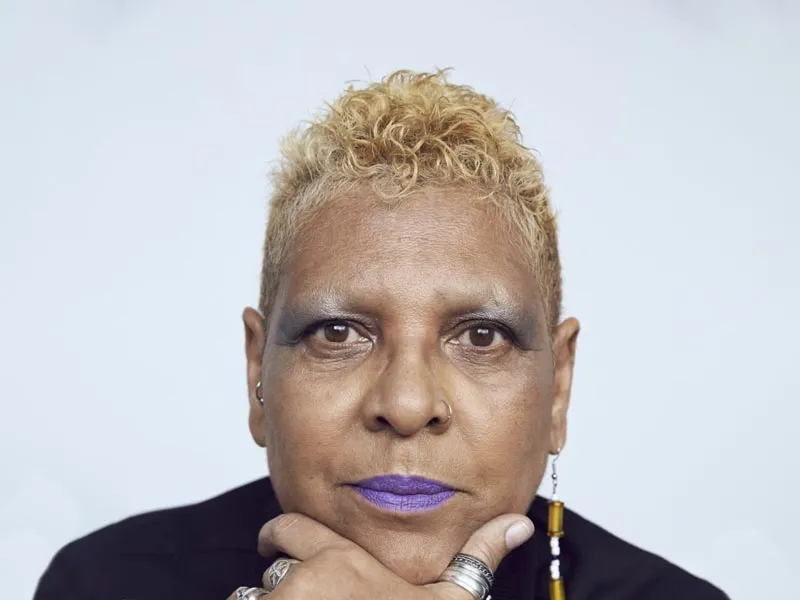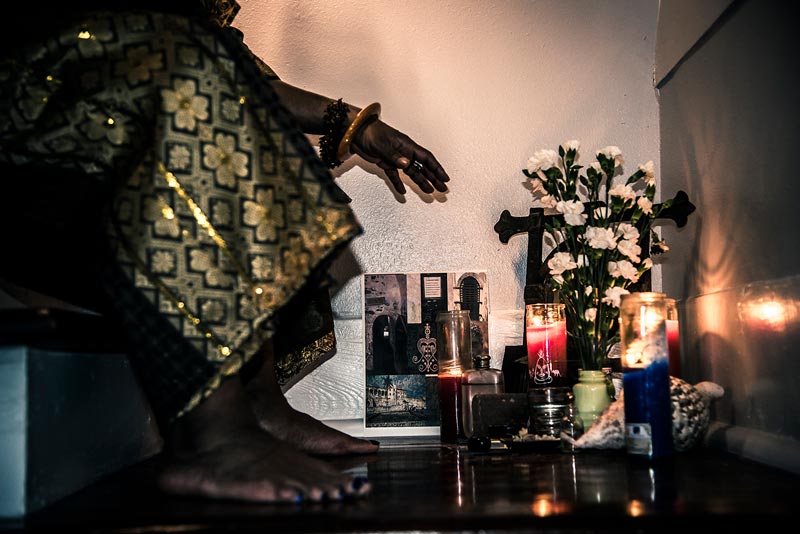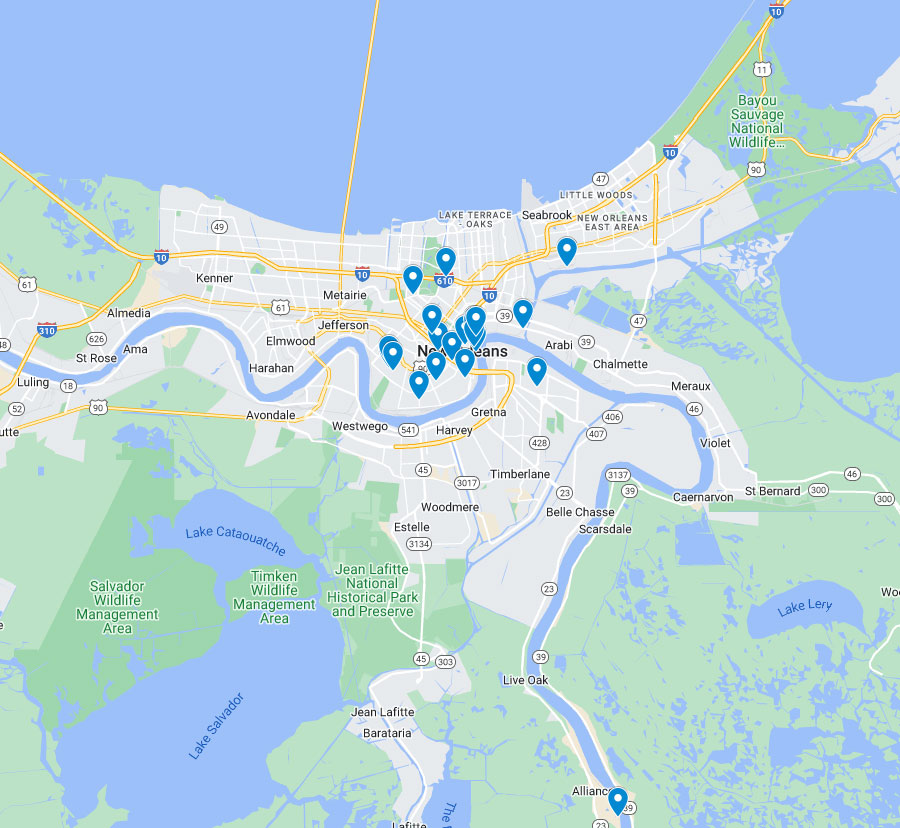
Biography
Sokari Ekine is a Nigerian visual scholar, educator and activist. She has worked in Africa, Europe, the Caribbean and the US. Her work focuses on decolonization, sexual rights, and African spirituality. In 2004 Sokari was one of the first African women to create an online blog, Black Looks, which includes a ten year archive on Queer Africa. She has worked in adult education; as editor and columnist; published in academic journals and news media on gender, militarization and queer politics, and is editor / co-editor of four ground breaking publications on Africa “SMS Uprisings: Mobile Phone Activism in Africa”[2010]; "African Awakenings" [2011] and "Queer African Reader" [2013]; and author of Blood and Oil: Testimonies of Violence from women of the Niger Delta [2000].
Research
“Altars: Black Queer Spirit Work” is a visual and textual intervention that addresses the making and significance of altars in the lives of black queer subjects. Using visual imagery, conversations and contemporary research, the project explores how we as black queer subjects participate in African Diasporic spiritual practices through the creation of altars.
Altars are central to black queer people as a way of engaging with the past, present and future of black life. Through the making of personal and communal altars we are able to resist and persist within an everyday reality of intersectional violences such as anti-blackness, sexism, homophobia, and transphobia. Altars are also a way of creating communion with other black queer identified people, and our ancestors, bringing together an erotic poetics of intimacy and interiority which during these moments become spaces for radical belonging. Altars help us construct our own narratives of freedom and resistance; memory and storytelling; healing and community; desire and possibility.
The project will produce a body of work through a collaboration between myself as visual researcher and black queer spiritual practitioners who are located in the Gulf South and who will contribute individual textual narratives about their altars.



